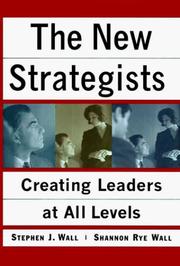| Listing 1 - 6 of 6 |
Sort by
|
Book
ISBN: 9780199284559 0199284555 Year: 2008 Publisher: Oxford: Oxford university press,
Abstract | Keywords | Export | Availability | Bookmark
 Loading...
Loading...Choose an application
- Reference Manager
- EndNote
- RefWorks (Direct export to RefWorks)
Grande-Bretagne --- --European Union --- History --- Great Britain --- European Union countries --- Foreign relations --- 327.410409045 --- -Great Britain --- EU countries --- Euroland --- Europe --- -Foreign relations --- -327.410409045 --- -Grande-Bretagne --- Great Britain - Foreign relations - 1979-1997 --- Great Britain - Foreign relations - 1997 --- -Great Britain - Foreign relations - European Union countries --- European Union countries - Foreign relations - Great Britain
Multi
ISSN: 14748398 ISBN: 9781138797390 9780203103272 9781136243820 9781136243868 9781136243875 9780415535601 1138797391 Year: 2014 Publisher: London: Routledge,
Abstract | Keywords | Export | Availability | Bookmark
 Loading...
Loading...Choose an application
- Reference Manager
- EndNote
- RefWorks (Direct export to RefWorks)
Great Britain --- Politics and government --- European Union --- History --- European Union countries --- Foreign relations --- Great Britain - Politics and government - 1964-1979 --- Great Britain - Foreign relations - 1964-1979 --- Great Britain - Foreign relations - European Union countries --- European Union countries - Foreign relations - Great Britain
Book
ISBN: 9780198840671 0192577158 0198840675 Year: 2020 Publisher: New York (N.Y.): Oxford university press,
Abstract | Keywords | Export | Availability | Bookmark
 Loading...
Loading...Choose an application
- Reference Manager
- EndNote
- RefWorks (Direct export to RefWorks)
"In 2016, the voters of the United Kingdom decided to leave the European Union. The majority for 'Leave' was small. Yet, in more than 40 years of EU membership, the British had never been wholeheartedly content. In the 1950s, governments preferred the Commonwealth to the Common Market. In the 1960s, successive Conservative and Labour administrations applied to join the European Community because it was a surprising success, whilst the UK's post-war policies had failed. But the British were turned down by the French. When the UK did join, twelve years after first asking, it joined a club whose rules had been made by others and which it did not much like. At one time or another, Labour and Conservative were at war with each other and internally. In 1975, the Labour government held a referendum on whether the UK should stay in. Two thirds of the voters decided to do so. But the wounds did not heal. Europe remained 'them', not 'us'. The UK was on the front foot in proposing reform and modernisation and on the back foot as other EU members wanted to advance to "ever closer union". This book tells the story of a relationship rooted in a thousand years of British history, and of our sense of national identity in conflict with our political and economic need for partnership with continental Europe"--
European Union --- Great Britain --- European Union countries --- Foreign relations --- Politics and government --- EUROPE--FOREIGN RELATIONS--GREAT BRITAIN --- GREAT BRITAIN--FOREIGN RELATIONS--EUROPE --- GREAT BRITAIN--POLITICS AND GOVERNMENT --- EU--GREAT BRITAIN --- Great Britain - Foreign relations - European Union countries. --- European Union countries - Foreign relations - Great Britain. --- Great Britain - Politics and government - 1945 --- -Great Britain - Foreign relations - European Union countries. --- -Great Britain
Book
Abstract | Keywords | Export | Availability | Bookmark
 Loading...
Loading...Choose an application
- Reference Manager
- EndNote
- RefWorks (Direct export to RefWorks)

ISBN: 0028740580 Year: 1995 Publisher: New York Free Press
Abstract | Keywords | Export | Availability | Bookmark
 Loading...
Loading...Choose an application
- Reference Manager
- EndNote
- RefWorks (Direct export to RefWorks)
Business policy --- Changement Verandering --- Equipe Team --- Stratégies (management) Strategieën (management) --- Managers Managers --- Leadership Leadership --- Plan (management) Plannen (management) --- Strategic planning. --- Leadership. --- Employee empowerment. --- Employee empowerment --- Leadership --- Strategic planning --- Goal setting (Strategic planning) --- Planning, Strategic --- Strategic intent (Strategic planning) --- Strategic management --- Empowerment, Employee --- Planning --- Business planning --- Ability --- Command of troops --- Followership --- Delegation of authority --- Management --- Employee participation
Book
ISBN: 9780199669530 9780199669547 0199669546 0199669538 Year: 2015 Publisher: New York, NY: Oxford university press,
Abstract | Keywords | Export | Availability | Bookmark
 Loading...
Loading...Choose an application
- Reference Manager
- EndNote
- RefWorks (Direct export to RefWorks)
This is the inaugural volume of Oxford Studies in Political Philosophy. Since its revival in the 1970s political philosophy has been a vibrant field in philosophy, one that intersects with jurisprudence, normative economics, political theory in political science departments, and just war theory. OSPP aims to publish some of the best contemporary work in political philosophy and these closely related subfields. This first volume features eleven papers and an introduction. The papers address a range of central topics and represent cutting edge work in the field. They are grouped into four main themes: democracy, political liberalism and public reason, rights and duties, and method.
| Listing 1 - 6 of 6 |
Sort by
|

 Search
Search Feedback
Feedback About UniCat
About UniCat  Help
Help News
News